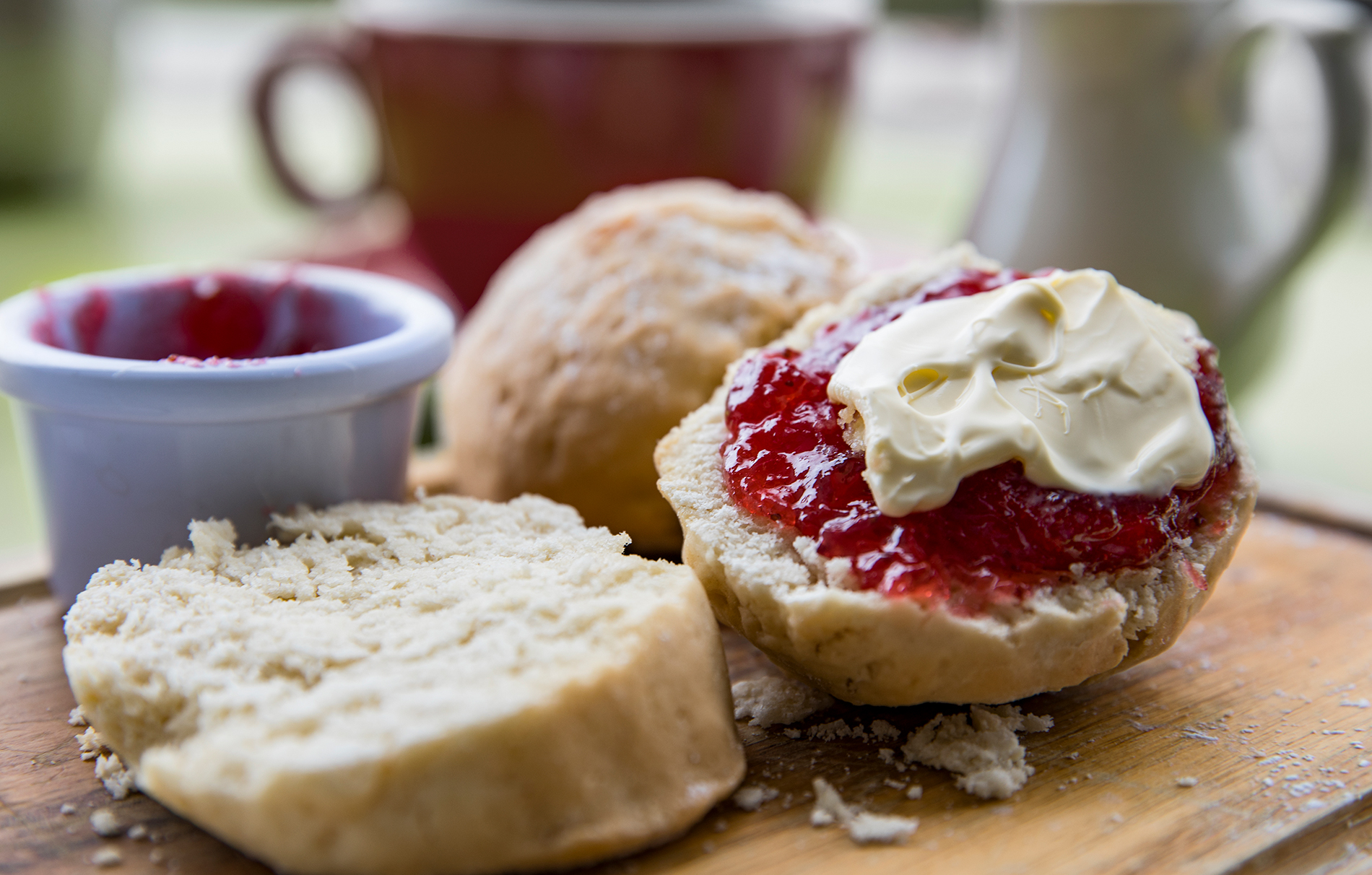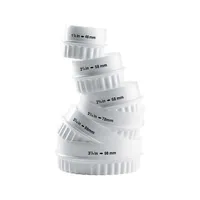Parenting advice, hot topics, best buys and family finance tips delivered straight to your inbox.
You are now subscribed
Your newsletter sign-up was successful
Whether you are hosting cream tea with the family or practicing before you enter the next series of The Great British Bake Off, Paul Hollywood’s scones are simple to make, baked in just 10 minutes.
One way to ensure perfectly soft and fluffy scones each time you bake them is by following Paul Hollywood’s clever tip of swapping standard self-raising flour for bread flour instead. This will lighten the mixture, meaning no more dense texture when serving. Top with fresh clotted cream, and strawberry jam and enjoy as part of an afternoon tea spread, or simply with a hot cuppa.
Ingredients
For the scones:
- 500g strong bread flour, plus a little extra for rolling out
- 80g softened butter, plus a little extra to grease the baking tray
- 80g caster sugar
- 2 eggs
- 25g baking powder
- 250ml oz milk
- 1 free-range egg, beaten with a little salt (for glazing)
For the scones filling:
- Butter
- Good-quality strawberry or raspberry jam
- Clotted cream
You'll also need:
- Round pastry cutter (about 7.5cm/3in wide)
WEIGHT CONVERTER
Method
- Weigh out the ingredients. Preheat the oven to 220°C (200°C fan assisted)/425°F/gas mark 7. Lightly butter and line a flat baking tray with baking parchment or silicone paper (not greaseproof).
- Put 450g/15 1/2oz of the flour into a large bowl and add the butter. Rub the flour and butter together with your fingers to create a crumble/breadcrumb-like mixture.
- Add the sugar, eggs and baking powder and use a wooden spoon to turn the mixture gently. Make sure you mix all the way down to the bottom and incorporate all of the ingredients.
- Now add half of the milk and keep turning the mixture gently with the spoon to combine. Then add the remaining milk a little at a time and bring everything together into a very soft, wet dough. You may not need to add all of the milk.
- Put most of the remaining flour onto a clean work surface. Tip the soft dough onto the flour and sprinkle the rest of the flour on top. The mixture will be wet and sticky.
- Lightly chaff the mixture - use your hands to fold the dough in half, and then turn the dough a quarter turn and repeat. By folding and turning the mixture in this way, you incorporate the last of the flour and add air. Do this a few times until you’ve formed a smooth dough. If the mixture is too sticky use some extra flour to coat your hands or the mixture to make it more manageable. Be careful not to overwork your dough.
- Next roll the dough out: sprinkle flour onto the work surface and the top of the dough. Use the rolling pin to roll up from the middle and then down from the middle. Turn the dough a quarter turn and repeat until it's about 2.5cm/1in thick. Relax the dough slightly by lifting the edges and allowing the dough to spring back.
- Using a pastry cutter, stamp out rounds and place them onto the baking tray. Once you’ve cut 4 or 5 rounds you can re-work and re-roll the dough to make it easier to cut out the remaining rounds. Any left-over dough can be worked and rolled again using a rolling pin, but the resulting scones won’t be as fluffy.
- Place the scones on the baking tray and leave them to rest for a few mins to let the baking powder work. Then use a pastry brush (or your finger if you don’t have a brush) to glaze them with the beaten egg and salt mixture. Be careful to keep the glaze on the top of the scones. If it runs down the sides it will stop them rising evenly.
- Bake in the middle of the oven for 15 mins, or until the scones are risen and golden. Leave the scones to cool, then split in half and add butter, jam and clotted cream to serve.
Top tips for making Paul Hollywood's scones:
To make the best scones, make sure you read and follow the method and allow time to carefully combine the ingredients as overworking the dough can lead to a tough bake that does not rise.
Paul Hollywood advises when cutting the scone pastry to create that iconic scone shape, to not twist the cutter when lifting as it will negatively affect the rise. Push the cutter down and lift at the same angle for a clean cut and better rise.
Parenting advice, hot topics, best buys and family finance tips delivered straight to your inbox.
How do you stop butter from melting out of scones?
You do not want your butter to melt out of the scones, one way to prevent this is to use cold or frozen butter and make sure the butter is properly incorporated into the mixture. If there are lumps in your dough then the butter will ooze out during cooking. Taking time to combine all ingredients and allowing the recommended proving time is key to preventing the butter from melting.
How do you get a higher rise on a scone?
There are a few techniques you can use to ensure your scones have a good rise. Ideally, you want them to be around 2 inches high. One way to do this is to flip each scone so the side on your worktop is now facing upright. This helps by counteracting the force used when pushing down to cut out the shape. Other precautions to take are to make sure the butter is cold and the oven is at the right temperature, the heat difference can shock the batter and prevent them from rising, read through the recipe and you should create the perfect scone.
How do you make Paul Hollywood scones gluten-free?
You can transform Paul Hollywood’s scones into a celiac-friendly recipe and make them gluten-free by swapping out the bread flour for a gluten-free flour alternative. Gluten-free flour may alter the texture of the scones slightly compared to bread flour, however, they will still taste just as good and will look the same when fully baked.
Crimped & Plain Plastic Scone & Cookie Cutters - View at Lakeland
Looking for the perfect scone cutters? Try this six-pack of crimped and plain cutters from Lakeland, with a variety of sizes these cutters are ideal for an assortment of recipes including biscuit and tart making. Dishwasher safe with a three-year guarantee included.
To help elevate Paul Hollywood’s scones we’d recommend making homemade strawberry jam. Or you can try out our classic scone recipe to perfect your rise. You might also like to see what other Paul Hollywood recipes we have on Goodto - including his famous strawberry tarts and cob loaf.

Paul Hollywood is best known for being a judge on Channel 4’s baking competition ‘The Great British Bake Off.’ Although he’d originally trained as a sculptor, Paul’s father - who was also a baker - managed to persuade him to join the family business. And thank goodness he did. Paul went on to become one of the best artisan bakers in the country working at some of the most prestigious hotels in London including The Dorchester and The Grosvenor.
- Zoe PollockEditorial Executive


